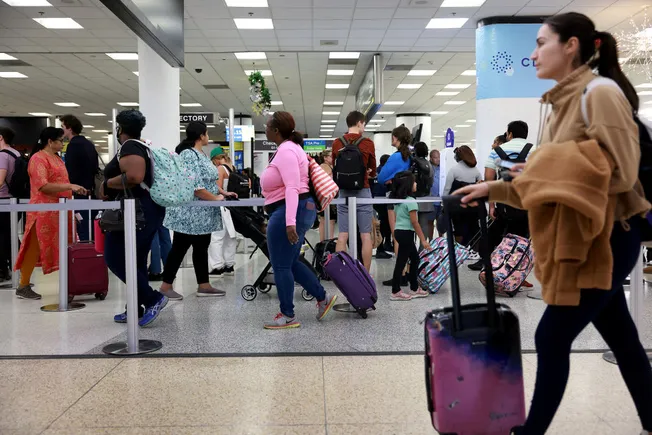Return to office. Three words that are essential for employers to build culture and operate successfully but are often a headache for HR leaders.
New research shows that 87% of employers require their workforce to be in the office at least 3 days per week. At the same time, employees continue to identify their commute as one of the worst parts of their day and the biggest reason for why they prefer a hybrid work model. In a competitive labor market, HR leaders are expected to attract talent, protect the business, and keep employee morale high – all at the same time.
These challenges are not going away. With the rising cost of living and employers embracing hybrid work, which impacts the need to be in the office every day, more employees are moving farther away from the largest U.S. cities and commuting longer distances.
The average commute now extends 54 miles round-trip, a significant increase from 2019. Some employees live further away from their workplace because they may only need to go in a few days per week. Others are being priced out of urban centers and may need to move farther from their workplace to find affordable housing. Yet still, many employees cannot easily access public transit, and for some, vehicle costs can be prohibitive.
If employers helped ease employee commuting costs by reimbursing them for that average 54-mile round-trip commute, they would pay an average of $36 per day for every employee, based on the 2024 IRS mileage reimbursement rate of $.67 per mile.
Prioritizing employee savings and well-being
Longer commutes can be associated with more daily stress, anxiety, physical strain, and increased costs for employees. HR leaders need to be creative to retain employees, making sure they are happy and inspired before and after their work day. They also need to attract potential candidates who have become accustomed to working at home. Organizations are looking for solutions to navigate these trends and change the workplace conversation around commuting and returning to the office.
Vanpooling – an extension of public transit – is quickly gaining momentum across the country as a commuter benefit. Employees can connect and share driving responsibilities with coworkers that live nearby, offering several key benefits to participants.
Vanpooling can help improve employees’ mental well-being by reducing the daily stress and anxiety associated with commuting. When people with long commutes do not need to be behind the wheel each day, they get time back in their days to relax, catch up on work and more. Additionally, a vanpool can build camaraderie. Research from 2022 shows that having friends at work can lead to improved satisfaction and productivity. It can also lead to stronger business outcomes related to output and retention. Employees arrive at work feeling refreshed and inspired.
These programs can also help save employees money by reducing the cost of fuel and vehicle maintenance on personal vehicle use. R.W. Beckett, a North American manufacturing leader, worked with Commute with Enterprise to create a vanpool program helping its early shift workers with limited access to public transportation choices. After introducing the program, word got around, and the company quickly saw adoption grow. Participating employees saved an average of $6,700 per year on commuting costs and HR leadership noticed employees took more ownership of their jobs.
Commuter benefits, like vanpooling, have the potential to improve employee morale and give HR leaders a unique opportunity to positively impact the conversation around commuting and coming to the workplace, a win-win for employers and employees.
Mike Mangan is Vice President of Commute with Enterprise for Enterprise Mobility. He is responsible for oversight of the organization’s vanpool operations and commuting solutions.
Commute with Enterprise is one of the largest and most cost-effective vanpool operations in U.S., taking the equivalent of approximately 50,000 vehicles off the road and out of parking spaces each workday in 2023. This alternative commuting solution offers customizable programs to help overcome transportation challenges such as job access, transit reach congestion/pollution/VMT reduction or financial efficacies






Leave a Reply